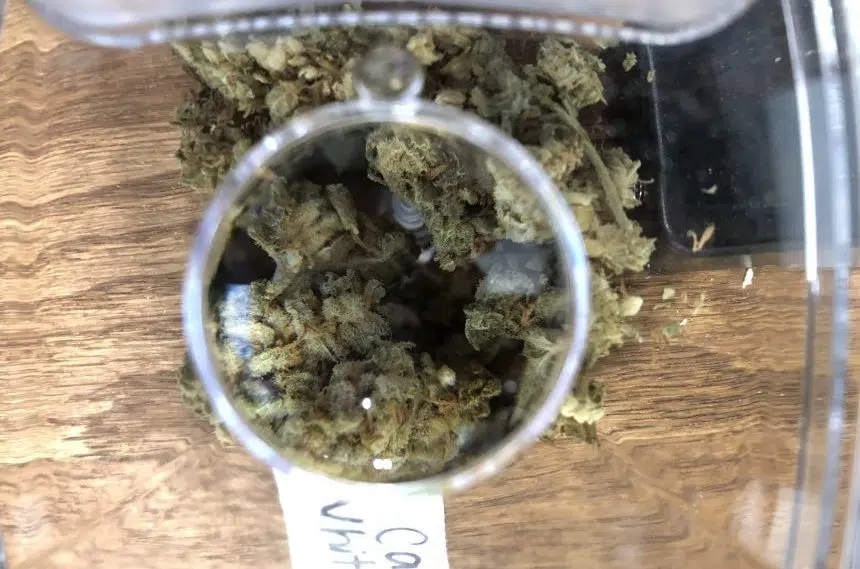A retired Colorado police chief is warning Canadians that legalizing marijuana in his state came with a deadly cost on the roads.
Marco Vasquez is a retired police chief from Eerie and was asked to speak on behalf of the Colorado Association of Chiefs of Police about the impact of marijuana legalization.
He said Canadians are wise to be concerned about the potential for a spike in people driving while impaired by marijuana.
Vasquez pointed to a report released in September by the Rocky Mountain High Intensity Drug Trafficking Area which was established by the U.S. federal government specifically aimed at supporting the drug-control policy.
The study shows that fatalities involving drivers who tested positive for marijuana more than doubled in the four years since legalization, from 55 deaths in 2013 to 138 deaths in 2017.
It is unclear how many of those crashes were proven to be caused by marijuana impairment.
The report says 76 out of the 112 drivers who tested positive still had levels of THC indicating use within hours and 36 per cent of those drivers were over the legal limit for marijuana specifically. THC is the active compound in marijuana responsible for impairment.
The study also does not clarify if these numbers account for an increase in testing for marijuana in all drivers involved in crashes after legalization in 2014 but says the rate of testing is consistent with the past where less than 50 per cent of drivers involved in traffic deaths were tested for marijuana.
Vasquez noted that coroners always tested for the presence of drugs in people who die in crashes so he felt the statistics painted a reliable picture, particularly for people driving and dying while impaired by marijuana.
“The percentage of all Colorado traffic deaths that were marijuana-related increased from 11.4 per cent in 2013 to 21.3 per cent in 2017. So we’ve seen a dramatic increase in the number of people who die behind the wheel who have marijuana in their system,” Vasquez commented.
Denver police DUI unit seeing more drivers mixing marijuana and alcohol
The same report cited a Colorado Department of Transportation Survey which found 69 per cent of self-identified marijuana users admitted to driving after using the drug.
The combination of alcohol and marijuana is also particularly concerning for police. The same report found 70 per cent of people charged with driving under the influence of alcohol also tested positive for marijuana and half of those were above the legal limit for marijuana as well.
Sergeant Alan Ma is with the Denver Police Department’s DUI and drug-recognition enforcement unit.
He said city police saw double the number of cases specifically for marijuana-impaired driving jumping from 36 to 66 in the first year of legalization, with DUIs involving other drugs also increasing. For the next three years, the rates remained the same.
He admitted the statistics don’t necessarily reflect a clear increase because there was no reliable way to track the numbers prior to 2013. Ma added that the picture gets more complicated because many drivers charged with DUIs are only tested for alcohol, even though many appear to be using alcohol and marijuana at the same time.
“Due to costs of blood drug testing, if officers suspect someone is under the influence of alcohol and drugs for example marijuana – however the person’s alcohol level is at or above the illegal limit, then we would only process the person for driving under the influence of alcohol,” Ma explained. “The marijuana-impaired testing would not take place in those cases.”
From his enforcement experience as an officer dedicated to DUIs and as a DRE, Ma said he sees more drivers under the influence of both alcohol and marijuana, with some mixing in other drugs as well.
“Especially marijuana and alcohol is a very dangerous combination and there have been studies showing that when people use marijuana in combination with alcohol the level of intoxication can be multiplied,” Ma said.
“From an enforcement experience, we see that as well. With a very minimum amount of alcohol and a very small amount of marijuana that combination itself can induce quite a significant intoxication.”
SGI Minister ‘very concerned’
Provincial SGI Minister Joe Hargrave was very troubled by reports of an increase in fatal crashes where drivers tested positive for marijuana and other drugs.
“Very concerning, that’s why we’re working so closely with MADD (Mothers Against Drunk Driving), that’s why we’re talking about impaired driving,” Hargrave said of the Colorado report during an awareness event about impaired driving in Regina in the week prior to legalization.
He pointed to progress on the front of addressing Saskatchewan’s drinking and driving rates and said he doesn’t want to see drug-impaired driving become a bigger issue.
“I’m worried – we had a 40 per cent reduction in deaths from drinking and driving last year. I want that number to go down, I don’t want it to go up,” Hargrave said.
He did express confidence in the extra training police forces in the province have undergone to catch drug-impaired drivers to be as prepared as possible.
“Be it prescription drugs or marijuana, if you get behind the wheel and you’re impaired – we’re going to get you,” Hargrave said.
He said this is why SGI has been getting out in front of legalization by pushing strong messages against drug-impaired driving.











